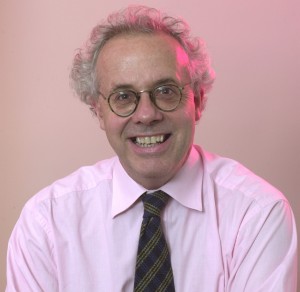 “All problems are ultimately linguistic problems,” says Muir Gray, once NHS chief knowledge officer, misquoting the philosopher Ludwig Wittgenstein. But I don’t think that he misquoted him badly, and that Wittgenstein did say something along those lines.
“All problems are ultimately linguistic problems,” says Muir Gray, once NHS chief knowledge officer, misquoting the philosopher Ludwig Wittgenstein. But I don’t think that he misquoted him badly, and that Wittgenstein did say something along those lines.
I thought of Muir and Wittgenstein, a powerful couple, as I read a piece in the Guardian about whether there is such a thing as “just terrorism.” My immediate response was that if it’s possible to have a “just war,” then “just terrorism” must also be possible. But don’t terrorists kill civilians? Can that be just? But then in war these days more civilians than soldiers are killed. Oh dear, this is difficult.
Giles Fraser, a priest, describes in his Guardian piece how lawyers have got stuck with trying to define “terrorism,” which is clearly a problem when we have laws on “terrorism” and hear the word 50 times a day on the radio. We all know that Nelson Mandela was a “terrorist” before he became the most revered man in the world. The current horrors in Gaza illustrate the problem.
The Israelis justify not talking to Hamas because they are a “terrorist” organisation, seeking the destruction of Israel and firing rockets indiscriminately into their country. Hamas see themselves as fighting a just war against an occupying force, so they are “liberators” not “terrorists”— the Nelson Mandelas of the future. Indeed, they see the Israelis as “terrorists,” bombing hospitals, schools, and killing many more civilians than soldiers. For Israelis, this is ridiculous as they are a nation state defending themselves against attack.
“Terrorist” is currently just about the most potent word in English, rivalled only perhaps by “paedophile.” And it is these highly emotional words that lose their meaning first, but many words we use in health—privatisation, commissioning, quality, integrated—have become very confused, close to the point of being worthless.
“Privatisation” is probably the best example. For economists, it has a technical meaning—“the sale of public assets to the private sector.” So British Airways, British Telecom, and British Gas were privatised under the economists’ definition; but with this definition the NHS is not being privatised. Ironically, economists might say that a big chunk of the NHS has been private ever since it began: in that many GPs own their own premises, from which they provide NHS services.
But ordinary people tend to use “privatised” to mean any NHS function being provided by the private sector. This definition implies again that most of general practice has been private ever since the NHS began. But “ordinary people” (whoever they may be) don’t tend to think this way because a) they don’t know that GPs are in the private sector and b) because it’s been that way as long as anybody can remember. Most GPs don’t like to think of themselves as being in the private sector, and by “privatisation” they tend to mean services being provided by companies that have shareholders to whom they dispense “profits.” (There’s another tricky word: when I was first editor of The BMJ and chief executive of the BMJ Publishing Group, we preferred “surplus” to “profit.”) But what about “social enterprise” companies? (That’s yet another phrase that means different things to different people.)
Recognising the universality of confusion over language, Muir Gray advocates that all meetings should begin with 15 minutes of agreeing definitions—rather as most philosophical papers and schoolchild essays begin. This seems eminently sensible to me. I have been in many meetings where we have talked with great energy and passion, and all emerged more confused than when we started. I realise afterwards that we have all had different ideas in our heads of what we are discussing. We talk across each other. The conversation never even begins.
Such a step as Muir advocates wouldn’t solve the problem of legally defining “terrorism,” but it would help to agree what exactly is being discussed at any given time—allowing communication with meaning, even if this means simply agreeing to disagree. But perhaps some words have become so encrusted with confused meanings and anger that they are best abandoned altogether. Maybe “terrorism” and “privatisation” are two of those words.
Richard Smith was the editor of The BMJ until 2004. He is now chair of the board of trustees of icddr,b [formerly International Centre for Diarrhoeal Disease Research, Bangladesh], and chair of the board of Patients Know Best. He is also a trustee of C3 Collaborating for Health.
